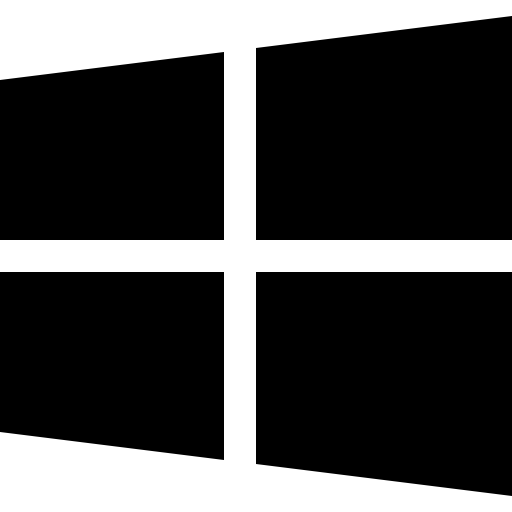India's performance at the Paris Olympics fell short of its Tokyo 2020 results, securing six medals compared to seven previously. The nation's ranking dropped from 48th in 2021 to 71st in 2024, with only one silver and five bronze medals, a modest return for a country of 1.4 billion.
Our UPSC Preparation Course, available in both online and offline modes, provides previous as well as latest current affairs along with world current events. MalukaIAS Courses cover pivotal global events such as the Renaissance, the Industrial Revolution, and the World Wars, focusing on their lasting impact on modern society. Our GS Foundation Advance Batch 2025 features carefully structured modules that align with the UPSC syllabus, giving students a comprehensive understanding of all subjects and their importance. Whether you choose our daily current affairs notes or the test series, this program is crafted to equip aspirants with the knowledge needed to excel in UPSC exams, especially in mastering current affairs.
ABOUT THE PARIS OLYMPICS 2024
The Paris 2024 Summer Olympics, held from July 24 to August 11, was an international multi-sport event hosted in Paris. With the motto "Games Wide Open," it featured 10,714 athletes from 206 nations competing in 329 events across 32 sports, including the debut of breaking as an Olympic sport.
TOP PERFORMING NATIONS IN PARIS OLYMPICS 2024
The United States led the medal table with 40 gold medals and 126 total medals, tied with China, which won 40 golds and 91 medals overall. This was the first tie for gold medals at the top of the Summer Olympic medal table. Japan came third with 20 gold medals and sixth in the overall count.
- India’s Performance at the Paris Olympics 2024: India ranked 71st in the medal table at the Paris Olympics 2024, with a performance marked by both successes and disappointments.
HITS OF INDIA’S PERFORMANCE IN PARIS OLYMPICS 2024
- Back-to-Back Athletics Medal: Neeraj Chopra won silver in men’s javelin, becoming the third Indian to secure consecutive individual Olympic medals.
- Spirited Shooting Performance: Manu Bhaker (25m sports pistol), Swapnil Kusale (50m rifle 3-position), and the mixed team of Sarabjot Singh and Manu Bhaker (10m air pistol) won bronze medals.
- Reliable Wrestling: Aman Sehrawat earned bronze, continuing wrestling's streak of Olympic medals for India since 2008.
- Rise of Indian Hockey: The Indian men’s hockey team secured a bronze medal, marking two consecutive Olympic medals for the sport.
MISSES IN INDIA’S PERFORMANCE IN PARIS OLYMPICS 2024
- Insufficient Gold Medal: Despite matching the London 2012 tally with six medals (one silver and five bronze), India’s absence of a gold medal was disappointing. Pakistan, with a smaller team, secured a gold and a higher ranking.
- Vinesh Phogat’s Disqualification: Vinesh Phogat's disqualification from the women’s 50 kg wrestling final prevented India from winning a gold or silver.
- Six 4th Place Finishes: Six athletes, including Arjun Babuta (10m air rifle) and Lakshya Sen, finished 4th, missing out on bronze medals.
- Disappointments in Badminton, Boxing, and Archery: Boxers Nishant Dev and Lovlina Borgohain lost in the quarterfinals, badminton produced no medals, and archery continued to disappoint.
CAUSES FOR INDIA’S UNDERPAR PARIS OLYMPICS 2024 PERFORMANCE
- Mismanagement of Athletes: Issues like Vinesh Phogat’s disqualification reveal systemic failures in athlete management and support.
- Lack of Consistency and Performance Pressure: Six 4th place finishes reflect inconsistency and failure to handle performance pressure, with athletes often unable to capitalise on leads.
- Issues with Sports Federations: Politicisation, favouritism, and corruption in sports federations lead to inefficiencies, as seen in the confusion over Phogat’s weight category and Nikhat Zareen’s training issues.
- Inadequate Infrastructure and Training Facilities: India faces challenges in providing high-quality coaching, training programs, and competitive exposure compared to top sporting nations.
- Celebrity-Driven Sports Funding: Funding for elite athletes is often driven by celebrity status rather than effective, accountable support, leading to underwhelming performances.
- Cultural and Systemic Barriers: Cultural emphasis on academics over sports limits the number of athletes pursuing sports careers.
- Inconsistent Government Support: Despite some improvements, sports funding and infrastructure are still deprioritized compared to other social issues, hindering sports development in India.
GOVERNMENT INITIATIVES TO IMPROVE INDIA’S PERFORMANCE AT THE PARIS OLYMPICS
- Target Olympic Podium Scheme (TOPS): Launched in September 2014 and revamped in April 2018, TOPS supports elite athletes with monthly stipends of ₹50,000 and funding for training, competitions, and equipment.
- Mission Olympic Cell (MOC): Oversees TOPS, evaluating athletes’ progress and needs to provide targeted support.
- Khelo India Scheme: Aims to develop grassroots sports through infrastructure, talent identification, and coaching.
- International Exposure and Training Camps: Offers athletes opportunities for foreign training and competition to enhance experience and performance.
WAY FORWARD TO IMPROVE INDIA’S PERFORMANCE IN PARIS OLYMPICS
- Broadening Sports Focus: India should expand its pool of athletes for the 2028 Olympics by investing in swimming and athletics while maintaining success in badminton, weightlifting, wrestling, and boxing.
- Ending Bureaucratic Dominance and Corruption: Depoliticize sports bodies and establish professionalism to improve talent identification and development.
- Mental Conditioning: Analyze near-misses and employ more mental conditioning coaches to address performance under pressure.
- Collaborative Effort: Federations, the Sports Authority of India, the Sports Ministry, and NGOs must coordinate to build a consistent path to Olympic success.
- Integration of Sports in Curriculum: Integrate sports and physical education into school curricula to promote physical and psychological well-being, as outlined in the National Education Policy 2020.
- Establishment of a National Sports Education Board: Create a National Sports Education Board (NASECA) to standardize sports education and oversee a national curriculum.
- Promotion of Sports Culture: Shift societal attitudes to view sports as a legitimate career path through community engagement, media campaigns, and school initiatives.

-1721391937657.png)

